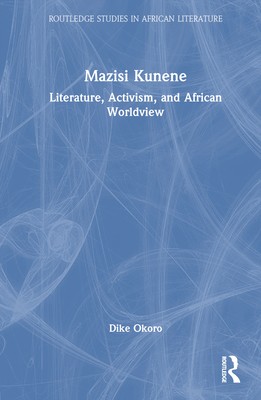
- We will send in 10–14 business days.
- Author: Dike Okoro
- Publisher: Routledge
- ISBN-10: 1032286555
- ISBN-13: 9781032286556
- Format: 15.6 x 23.4 x 1 cm, kieti viršeliai
- Language: English
- SAVE -10% with code: EXTRA
Reviews
Description
This book examines the life and work of Mazisi Kunene, the only recognized poet laureate of Africa, a Nobel Prize nominee, and a key symbol of African cultural independence.
Kunene is widely recognized for his epic poems that assert cultural identity and condemn the disruption of the growth and development of African culture through colonialism/postcolonialism. This book explores how 'oraliterature' and cultural traditions informed Kunene's poetry, how Kunene's poetry highlights African women and mothers, and how activism, mythology and transnational identities are depicted in his verse to promote cultural and generational continuities from Africa to the Diasporic Africans. Drawing on a range of interviews and comparative studies, the book situates Kunene's work in a wider conversation about South African social struggles.
This book is an important contribution to our understanding of one of the giants of African literary history. As such, it will be of interest to researchers across African literary and postcolonial studies.
EXTRA 10 % discount with code: EXTRA
The promotion ends in 21d.17:44:13
The discount code is valid when purchasing from 10 €. Discounts do not stack.
- Author: Dike Okoro
- Publisher: Routledge
- ISBN-10: 1032286555
- ISBN-13: 9781032286556
- Format: 15.6 x 23.4 x 1 cm, kieti viršeliai
- Language: English English
This book examines the life and work of Mazisi Kunene, the only recognized poet laureate of Africa, a Nobel Prize nominee, and a key symbol of African cultural independence.
Kunene is widely recognized for his epic poems that assert cultural identity and condemn the disruption of the growth and development of African culture through colonialism/postcolonialism. This book explores how 'oraliterature' and cultural traditions informed Kunene's poetry, how Kunene's poetry highlights African women and mothers, and how activism, mythology and transnational identities are depicted in his verse to promote cultural and generational continuities from Africa to the Diasporic Africans. Drawing on a range of interviews and comparative studies, the book situates Kunene's work in a wider conversation about South African social struggles.
This book is an important contribution to our understanding of one of the giants of African literary history. As such, it will be of interest to researchers across African literary and postcolonial studies.


Reviews